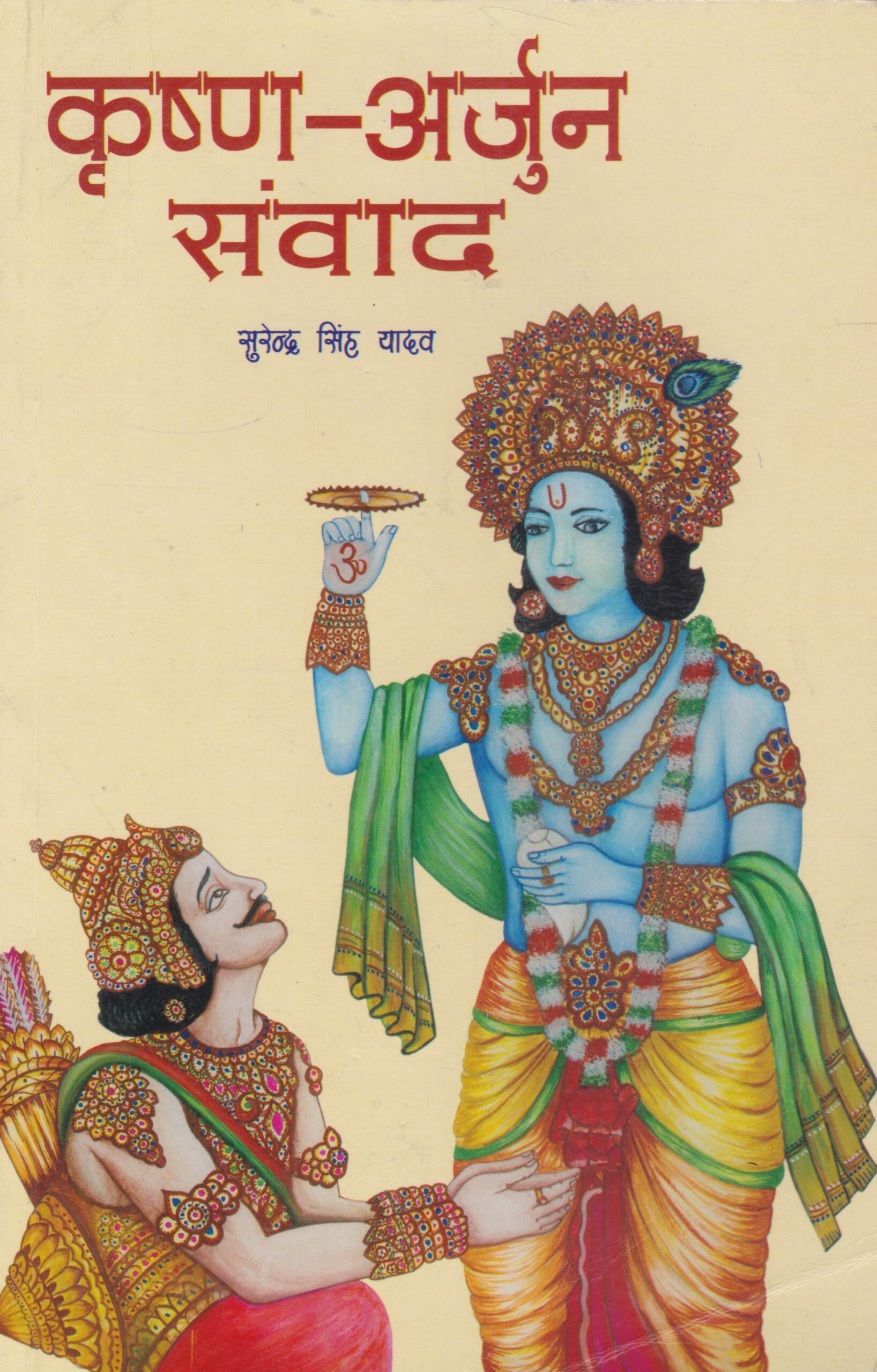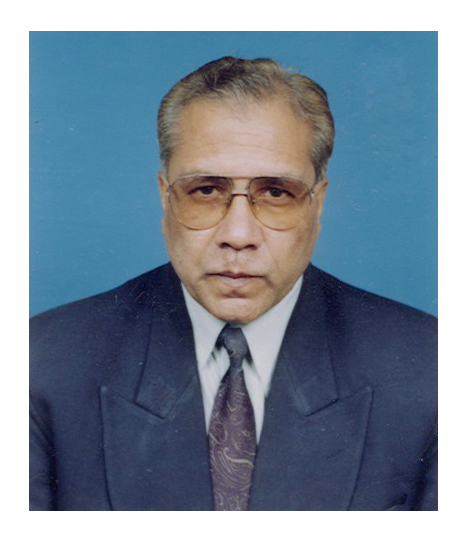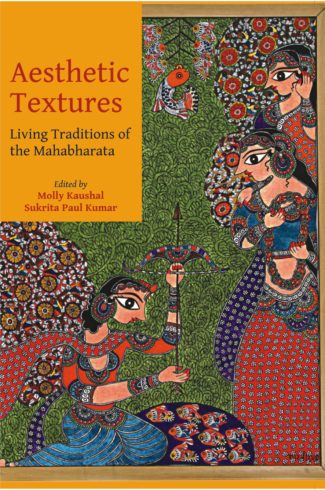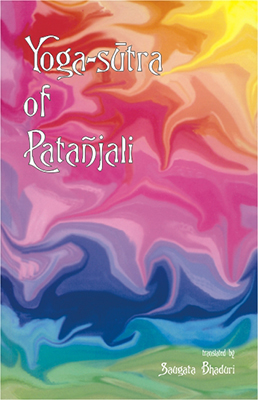

Krsna-Arjuna Samvada...
Krsna-Arjuna Samvada
Krsna-Arjuna Dialogue based on Bhagavad Gita by: Surendra Singh YadavGita is a great work emphasing on work and worship. Krsna advises Arjuna that he should not expect results. Instead, concentrate on his work with complete vigour and veneration. Gita is a path to sublimity where work meets worship as presented in this magnum opus here.
₹250.00 Original price was: ₹250.00.₹225.00Current price is: ₹225.00.
ISBN: 9788124601617
Year Of Publication: 2000
Edition: 1st
Pages : xviii, 146
Language : Hindi
Binding : Paperback
Publisher: D.K. Printworld Pvt. Ltd.
Size: 22 cm.
Weight: 250
Gita is a great work emphasing on work and worship. Krsna advises Arjuna that he should not expect results. Instead, concentrate on his work with complete vigour and veneration. Gita is a path to sublimity where work meets worship as presented in this magnum opus here.

- Sale!Brhadaranyaka Upanisad Vol. 1 Madhu Kanda by: Nitya Chaitanya Yati
₹800.00Original price was: ₹800.00.₹720.00Current price is: ₹720.00.The Brihadaranyaka Upanishad is one of the ten major Upanishads. A dialectical narration that unabashedly stands up to the rational scrutiny of the modern mind, it is directed towards both the individual aspirant caught up in the dark morass of confusion and the philosophic thinker in search of rare pearls of wisdom from humanitys treasury. Guru Nityas matchles commentary will enable the reader to discover the ancient seers timeles insights, to appreciate a fully-developed, integrated system of thought, and, most importantly, to learn to connect with what is real and enduring in his or her own essence. Schematically, the Brihadaranyaka Upanishad a brilliant discourse from the Yajur Veda is set out in three volumes, entitled: Madhu Kanda, Muni Kanda and Khila Kanda. In his planned three-volume thorough-going, meticulously analytical commentary. Guru Nitya distills the wisdom teaching of the Brihadaranyaka Upanishad, drawing on his intimate understanding of the human psyche, as well as both Eastern and Western philosophy, science, art and literature. Dwelling in turn on each of its 435 mantras, its poetic charm, myths, metaphors, images and symbols, Guru Nitya recreates and expands the Upanishadic vision of our own nature, human interaction, and the cosmos, and their relation to the unmoved essence of all. With highly useful appendices and a comprehensive index, the commentary will hold an enduring appeal for both scholars and discerning readers.
- Sale!Ancient History of India by: Charles J. Naegele
₹500.00Original price was: ₹500.00.₹450.00Current price is: ₹450.00.This is a fresh look at the history of Ancient India, centering on the Law Code of Manu (Manusmriti / Manu Dharmashastra), and its relationship to Rigveda and its possible relationship to the Indus/Harappan Civilisation of 4000 to 5000 years ago. It also throws light on Aryan society and culture, castes and guilds, use of technology and related practices in the Indus Valley Civilisation.
Dr. Charles Naegele, a practicing lawyer in Silicon Valley, California, USA, and a lifelong student of classical Indian knowledge, has written a work that will be certain to stir up controversy regarding the re-dating of the Law Code of Manu and the well-documented research concerning almost no possibility of Aryan Invasion Theory and the numerous similarities between the text of the Law Code of Manu and the archeological finds from the Indus/Harappan Civilisation.
Scholars and history buffs, as well as everyone who is proud of Indian heritage will enjoy not only this work, but also his future works. - Sale!Aesthetic Textures by: Molly Kaushal
₹1,800.00Original price was: ₹1,800.00.₹1,620.00Current price is: ₹1,620.00.The fascinating world of multiple Bharatas that this book introduces its readers with is that of a perennial tale discovered and created afresh at each juncture of time; at each moment of self-doubt and self-exploration; at each rejoicing of self-discovery and self-recovery. If one does not come across a seamless continuity here, one does not encounter apparent ruptures either. The Bharatas, as narrated here, present us with amazing diversity with palpable consubstantiality expressed in myriad forms and multiple hues; tradition belonging as much to its contemporaneity as to its past; belonging as much to the spokes as to the axle; centrifugal and centripetal at once; a tradition old and new at the same moment of time.
The book is based on the proceedings of a seven-day international conference organized by the Indira Gandhi National Centre for the Arts (IGNCA) on the living traditions of the Mahabharata in the year 2011. The conference explored the multiple tellings and retellings of the Mahabharata story as sung, danced, and celebrated in festivals, inscribed on to geographic landscapes, committed to memory as sacred genealogy, embodied in rituals, and sculpted in shrines and temples. The presentations ranged from issues of poetics and ethics to translations, adaptations, and variations to folk and tribal traditions as sung, recited, and performed. Rather than exploring the Mahabharata as a book or a singular narrative, these papers focus on the multi-tradition of the Mahabharata in all its multidimensionality, multiplicity, and above all, in its fluidity. The book would certainly interest the scholars engaged in the study of the living heritage of Indian epics, folklorists, indologists, and anthropologists. - Sale!Yoga-Sutra of Patanjali by: Saugata Bhaduri
₹200.00Original price was: ₹200.00.₹180.00Current price is: ₹180.00.Patanjali’s Yoga-sutra, one of the most well-known works in the Indian classical tradition, is recognised as the primary text of Yoga philosophy. Here, Dr. Bhaduri adopts a simple but unique approach in his study of the text to make it more suitable to the needs of the Indian students. This English translation of the Yoga-sutra by Dr. Bhaduri under the guidance of Prof. Kapil Kapoor in shastra Group of Centre of Liguistic and English, at Jawaharlal Nehru University, retains many Sanskrit terms, adding the English equivalents in footnotes and the glossary to avoid making inadequate renderings of Sanskrit technical terms. It translates only what is stated in the concerned sutras without elaborate commentaries in order not to confuse the reader and to allow him to draw independent conclusions. Presenting the sutras in original Sanskrit form along with their Roman transcription, it examines the Yoga philosophy in relation to the other five orthodox systems of classical Indian philosophy and analyses the manner in which it deals with issues of cognition and signification.
- Sale!Vada in Theory and Practice by: Radhavallabh Tripathi
₹1,300.00Original price was: ₹1,300.00.₹1,170.00Current price is: ₹1,170.00.Vada, meaning debates, dialogues, discussions, was the quintessential of Indian spirit, enabling and promoting the growth of different philosophical and knowledge systems of India. It percolated deep into our mindset and enriched the moral, ethical, religious and sociocultural edifice of anything that was essentially Indian in nature. As continuation of Anvikshiki from the bc era, vada helped thrive Indian traditional knowledge systems. It subsists on diversity and its tradition envisages pluralism.
Most of our Sanskrit works, covering a wide gamut of knowledge systems, are structured in the techniques of debate. This reality applies not only to the philosophical writings, but to Indian medical systems (Ayurveda), Arthashastra of Kautilya and Kamasutra of Vatsyayana as well. Even great epics like Ramayana and Mahabharata are no exceptions.
Vada culture involved verbal duals, attacks and even violence of speech, and all major religious systems — old or modern — were parties to it. This book also elucidates how vata was vital and critical for the growth of our socio-political fabrics. It shows how some of the major conflicts in philosophical systems were centred around karma, jnana, choice between violence and non-violence, pravritti and nivritti. It also presents the manifestations of vada on a vast canvas during the nineteenth and twentieth centuries. Modern spiritual and religious gurus like Ramana Maharshi, J. Krishnamurti and Vinoba Bhave were men of dialogues. Our scholars have applied the varied techniques of vada against the philosophical and scientific systems of the West to prove them correct.
This collector’s issue should enthrall a wide audience of philosophers, scholars and believers in Indian knowledge systems.







